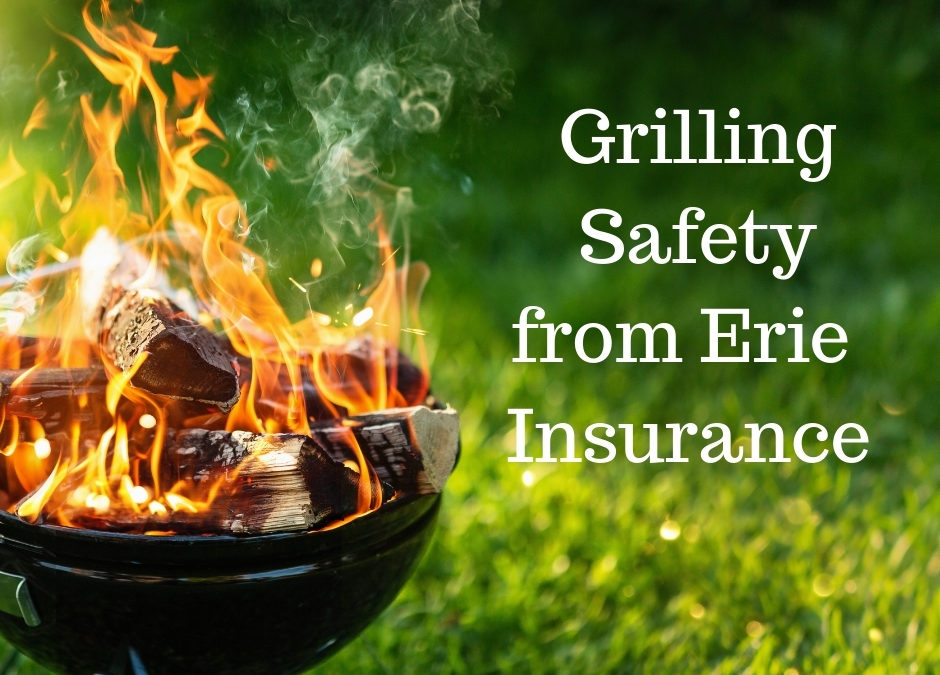Nothing says summer time like eating hamburgers, hot dogs and barbecue straight off the grill. There’s something about cooking your food over an open flame that seems to make everything taste better. But it does come with one notable risk: house fires.
According to the National Fire Protection Association (NFPA), grills are the cause of more than 10,000 house fires each year, on average – resulting in $149 million in property damage. (That’s why it helps to have the right homeowners insurance.)
How to Put Out A Grill Fire
Never use water. If your grill catches fire, your first instinct may be to spray it down with the hose. Bad idea! Grill fires are essentially the same as a grease fire in your kitchen. And because oil and water don’t mix, using water to extinguish the flames will just lead to an explosion of burning grease.
Use a fire extinguisher. The best way to put out a grill fire is by using a multi-purpose fire extinguisher. It’s smart to have one close by – and know how to use it – just in case. Make sure it’s been tested and inspected recently, too.
Smother the flame. If you don’t have a fire extinguisher on hand, smother the flame by cutting off the supply of oxygen. You can do this by closing the lid and grill vents. Spreading baking soda on the flame can also help put it out.
Grill Storage and Maintenance
Clean drip trays. Most grill fires can be prevented with a little bit of maintenance. If your grill has a drip pan or tray, get in the habit of regularly cleaning out the fat, grease and oil that collects there. And brush off your grill grates each time you’re finished cooking. It’s a messy job, but it will prevent fires by removing the fuel that gets burned while helping to prevent your grill from rusting.
Use a cover. Most grills are designed to be stored outdoors all year long. But using a weatherproof cover will help keep dirt and moisture out during wet and snowy weather.
Store propane safely. When your grill will be out of use for long periods of time, it’s best to fully disconnect the propane tank. If you decide to store your grill indoors for the winter, be sure to leave the gas tank outside. Propane should never be stored indoors – even in a shed or garage.
What to Do in an Emergency
Use a safe and trusted method to attempt to stop the fire. Using a multi-purpose fire extinguisher, make an attempt to put out the flames as quickly as possible.
Call 911. If you can’t put out the fire, call for help immediately. House fires spread quickly, so the faster you get professional help, the less damage it will do.
Treat any injuries. Each year, nearly 20,000 people visit an emergency room because of grill-related injuries. For minor burns, run cool water over the area, cover it with a sterile non-adhesive bandage and take an over-the-counter pain reliever. For more serious injuries, see a doctor immediately.
Assess the property damage. After the fire is out and any injuries have been treated, evaluate how much your property has been damaged. Take photos to document the damage, and consult your home inventory for any lost property. Your Erie Insurance agent can help you decide whether to file an insurance claim and guide you through the claims process if you do.
Protect What Matters Most
As a homeowner, you can take steps to ensure both your house and family are well protected. In addition to following these grilling safety tips, make sure you also have the right homeowners insurance coverage. For a fast, free coverage check, contact an ERIE agent in your neighborhood today.
Request a Quote: https://www.hrobatinsurance.com/
(216) 524-2007



